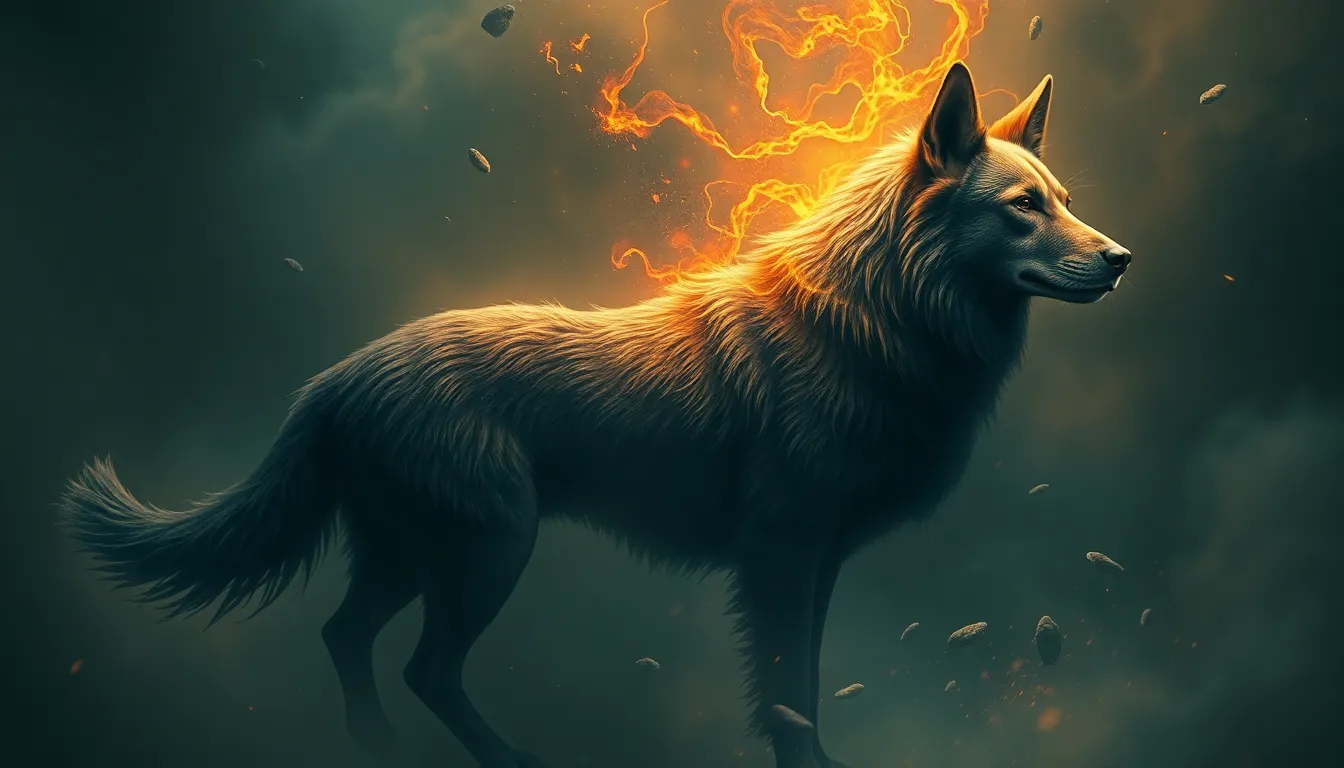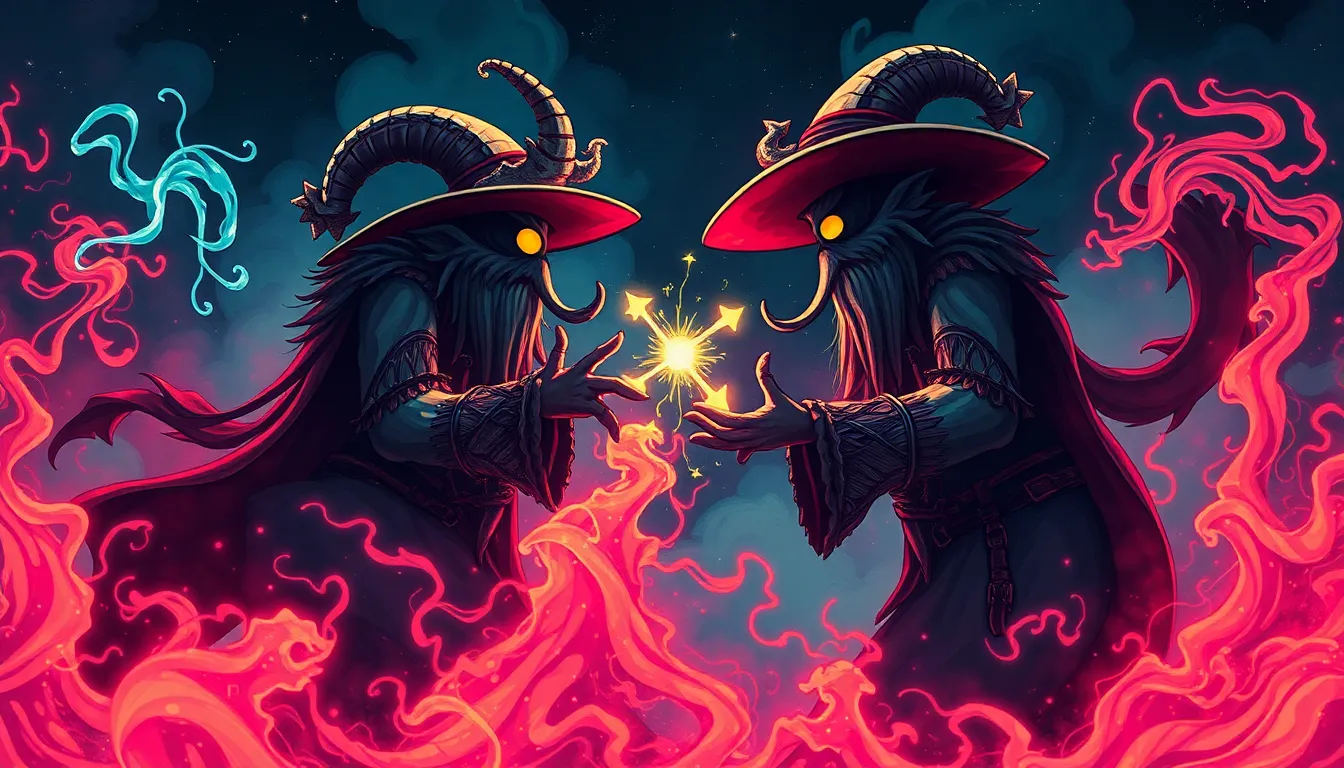The Myth of the Sacred Dog: Companionship and Loyalty
Introduction: Understanding the Sacred Dog Myth
The concept of the “sacred dog” encompasses a rich tapestry of meanings that vary across cultures and historical contexts. From being viewed as messengers of the divine to companions in the afterlife, dogs have occupied a privileged position in human societies. This article aims to explore the multifaceted nature of the sacred dog myth, delving into its origins, symbolism, and the psychological implications of canine companionship.
The Origins of the Sacred Dog Myth
Canine domestication is believed to have begun over 15,000 years ago, marking the first significant bond between humans and dogs. Early relationships were likely forged out of necessity, with dogs assisting in hunting and protection. Over time, cultural narratives began to emerge, intertwining dogs with folklore and mythology across various civilizations.
- In Ancient Egypt, dogs were associated with the goddess Bastet, symbolizing protection and fertility.
- In various Indigenous Tribes, dogs were seen as spiritual guides, often accompanying the deceased into the afterlife.
- In Greek mythology, the three-headed dog Cerberus guarded the gates of the Underworld, highlighting the link between dogs and the afterlife.
These narratives illustrate the deep-seated reverence for dogs, often elevating them to a sacred status in religious practices and cultural traditions.
Symbolism of Companionship in Different Cultures
The role of dogs as companions varies significantly across cultures, each attributing different meanings to their presence.
- Ancient Egypt: Dogs were seen as protectors and were often mummified alongside their owners.
- Indigenous Tribes: Dogs were considered family members, playing essential roles in hunting and protection.
- Eastern Philosophies: In some Eastern cultures, dogs symbolize loyalty and fidelity, often depicted as guardians of the home.
Specific breeds have also garnered reverence in cultural traditions. For instance, the Shiba Inu in Japan is celebrated for its loyalty, while the Saluki is revered in Middle Eastern cultures for its speed and grace.
The Psychological Aspects of Canine Companionship
Research has increasingly highlighted the psychological benefits of having dogs as companions. The bond formed between humans and dogs can significantly enhance mental health and emotional well-being.
- Emotional Support: Dogs provide unconditional love and companionship, reducing feelings of loneliness and depression.
- Social Connections: Owning a dog often leads to increased social interactions, fostering community bonds.
- Physiological Benefits: Studies have shown that petting a dog can lower blood pressure and increase serotonin levels.
Attachment theory further explains this bond, suggesting that the relationship with a dog can mirror human attachment styles, providing a sense of security and comfort.
Loyalty: Fact vs. Fiction
The concept of loyalty in dogs is often romanticized, leading to a blend of fact and fiction. While dogs exhibit strong bonds with their owners, the scientific understanding of canine loyalty reveals more complexity.
- Dogs are pack animals and often exhibit loyalty as a result of their social nature.
- Behavioral studies indicate that dogs can display attachment behaviors similar to those seen in children.
Numerous anecdotes highlight real-life examples of canine loyalty, such as the story of Hachiko, a dog who waited for his deceased owner at a train station for years, embodying the deep emotional connections dogs can form with humans.
The Role of Dogs in Modern Society
In contemporary society, dogs serve various important roles beyond companionship. Their status has evolved, and they now fulfill numerous functions:
- Service Animals: Dogs are trained to assist individuals with disabilities, providing critical support in daily activities.
- Therapy Animals: They are used in therapeutic settings to help alleviate stress and promote healing.
- Companionship in Urban Living: As more people live in cities, the companionship of dogs has become essential for emotional support and social interaction.
These roles illustrate the changing perceptions of dogs, from mere pets to valued members of the family and society.
Ethical Considerations of the Sacred Dog Myth
While the sacred dog myth elevates the status of dogs, it also raises ethical considerations regarding their treatment. There is an ongoing debate about the implications of viewing dogs as sacred beings:
- How does this perception influence animal rights and welfare?
- What are the responsibilities of pet owners in ensuring the well-being of their dogs?
- How can we balance reverence for dogs with the need for responsible breeding practices?
Addressing these questions is crucial in fostering a society that respects and protects canine companions.
The Intersection of Myth and Reality: Personal Stories
Personal narratives from dog owners often illuminate the profound companionship and loyalty that dogs provide. Many owners recount transformative experiences, such as:
- A dog aiding in the recovery from grief or trauma.
- Stories of dogs alerting owners to medical emergencies.
Interviews with dog trainers and behaviorists reveal insights into the complexities of canine behavior, emphasizing the importance of understanding each dog’s unique personality and needs.
Cultural Reinventions of the Sacred Dog Myth
Modern media continues to reinterpret the sacred dog myth, showcasing dogs in various forms of storytelling:
- Films: Movies like “Hachi: A Dog’s Tale” elevate the narrative of canine loyalty.
- Literature: Books featuring dogs often explore themes of companionship and sacrifice.
- Social Media: Platforms like Instagram and TikTok have given rise to dog influencers, reshaping perceptions of dogs in contemporary culture.
These cultural reinventions highlight the enduring legacy of the sacred dog myth and its relevance in today’s society.
Conclusion
In conclusion, the myth of the sacred dog serves as a testament to the profound bond between humans and dogs. From ancient civilizations to modern society, dogs have been revered not only for their loyalty and companionship but also for their unique roles in our lives. Understanding the complexities of this relationship, including the psychological benefits and ethical considerations, allows us to appreciate the true essence of canine companionship. As we continue to navigate the intersection of myth and reality, it is essential to honor our furry friends with respect and love, ensuring that their welfare is a priority in our shared journey.



